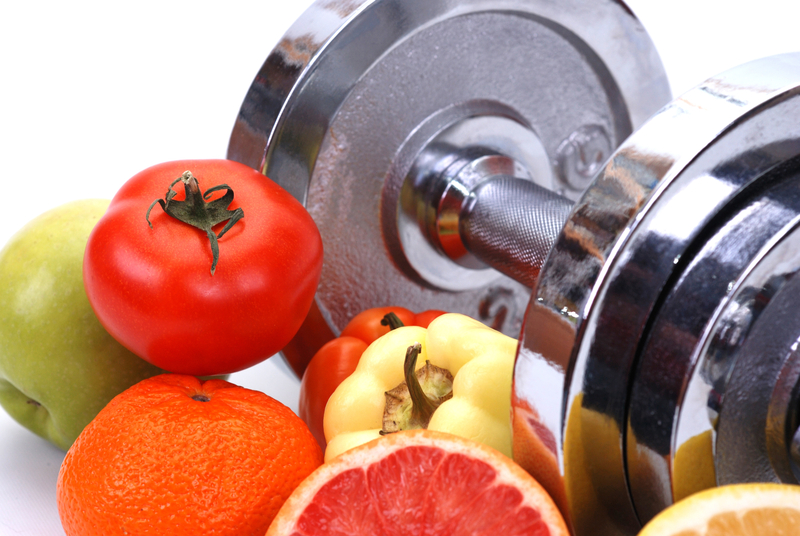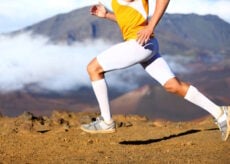Should You Eat Before or After a Workout? Find Out Now

Is it more important to eat before or after a workout? Both. The end.
All kidding aside, when it comes to training, how you eat before your workout matters, and how you eat after your workout matters. And, if you’re a serious trainer, how you eat during your workout even matters!
Why is how you eat around your training routine so critical? Because it can help or hinder your progress in a big way. Let’s examine the nuances and ins and outs of eating around your workouts in more depth as there are (naturally) many schools of thought.
First and foremost, it’s important to remember that food is fuel. Next, dialing it in with the proper pre- and post-workout nutrition is critical for fueling and energizing your body and making strength gains as well as fat-loss progress.
Fasted Training Benefits
What is fasted training? “Fasted” is just what it sounds like it is. You train, whether that be cardiovascular exercise (more common) or resistance training (not quite as common), prior to consuming any food (or caloric drinks) for the day. The premise behind this type of training is that during the course of the night while you’re sleeping, your body is using all the glycogen (food) in your bloodstream. That means you wake up in “fat-burning mode.”
Normally, when exercising, it can take at least 20 minutes to burn through the energy stored up in your bloodstream before you even begin to tap into fat. But, with fasted training, since your body typically has to go through all the available energy in your blood before it can tap into body fat stores, exercising in a “fasted state” can skip that process and allow you to progress straight to fat burning.
It also avoids any indigestion you could experience during your training session simply because there’s nothing in your belly to digest. Fasted training can also help you better adapt to your training and improve endurance.
There are, however, drawbacks to fasted training. For example, you could find that your workout performance is reduced and that it’s difficult to maintain or gain strength. Plus, because fasted training doubles up the stress on the body (training and fasting), it could also increase cortisol levels, which may lead to a loss of muscle mass.
How to Eat Before a Workout
Now, if you’re not doing fasted training, you’re probably going to want to fuel up your body with some carbohydrates. Why carbs, you ask? Carbs provide your body with energy—the fuel you’ll want to get through a tough workout.
There are two types of carbs to choose from: slow burning and fast energy. Depending on the type of workout you’re going to perform, you’ll want to choose the right fuel for your workout. Often, folks will opt for a healthy carbohydrate source that will provide sustained energy throughout the training session, like a complex carb. Some good examples of pre-workout carbs would be rice, sweet potatoes, or oatmeal.
If you need fast energy for exercise like sprints, look for a more simple carb like something with natural sugars, such as fruit or a smoothie.
That said, you also don’t want to forget proteins. Studies have shown that protein consumed before exercise can enhance athletic performance, increase protein synthesis, boost muscle growth, improve recovery, and increase strength. One very easy way to accomplish this is by consuming a protein-rich smoothie with some added fruit.
Regardless, you don’t want to eat too long before or too close to your exercise session. Aim for a small meal or snack one to two hours prior to working out.
How to Eat After a Workout
What you eat after a workout can make or break your results. Let’s start with protein. Because you are tearing up muscle fibers when you work out, it’s important to provide your body with the materials needed to rebuild those “damaged” muscle fibers. That means you need a healthy serving of protein after your workout, ideally within one hour after you finish training.
Next, you’ll want to restock your carbohydrate supply. Because you burned off energy and used all the glycogen stored in your bloodstream during your workout, you’ll need to take in sufficient carbs to resupply your stores.
But how many carbs you eat really depends on the type of exercise you did. If you are an endurance athlete (like a runner) who burns a steady stream of calories over an expanse of time, you probably need to refuel with a high-carb meal. If you just completed a strength training sesh, then focus more on a mix of protein (to rebuild the muscle) and carbs (to replenish the glycogen stores). And, if you’re simply doing cardio and trying to burn off excess body fat, you may want to stick with protein and fats after your workout for the most fat-burning bang for your buck.
Nutrition During Your Workout
And, last, but certainly not least, don’t forget to hydrate. Drinking the right fluids in the right amounts is also part of a healthy nutrition plan. Aim to consume at least eight glasses of water a day and even more if you’re breaking a sweat. You want at least three cups of water prior to a workout, at least a cup for every 30 minutes of exercise and 2 to 3 cups of water after a workout.
Finally, if you’re training at a high level for extended periods (like marathon training or extensive weight training), you may want to consider adding some simple sugars, branched chain amino acids, and electrolytes to your water bottle to properly fuel your body throughout your workout.
Should I Eat Before or After a Workout?
So, we’ve examined fasted training, pre-workout and post-workout nutrition, but what about the rest of the meals? Those are important, too! You’re probably familiar with the old adage, “you can’t out-train a bad diet.” If you’re going to put in the work, you might as well get the most out of it. Having a quality nutrition plan in place that includes plenty of lean proteins, lots of veggies, moderate fibrous and clean carbs, and healthy fats is key.






